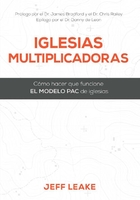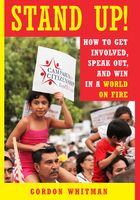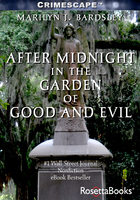As he waited for the call to be put through, Brunetti found the image of that young face, eyes splayed open in death, came back into his memory. It could have been any one of the faces he had seen in the photos of the American soldiers in the Gulf War: fresh, clean-shaven, innocent, glowing with that extraordinary health that so characterized Americans. But the face of the young American on the embankment had been strangely solemn, set apart from his fellows by the mystery of death.
'Brunetti,' he said, answering the buzzing intercom.
'They're very hard to find, those Americans,' the operator said. 'There's no listing in the Vicenza phone book for American base, or for NATO, or for the United States. But I found one under Military Police. Wait just one minute, sir, and I'll put the call through.'
How strange, Brunetti thought, that a presence so strong should be all but unfindable in the phone book. He listened to the usual clicks of a long-distance call, heard it ring at the other end, and then a male voice said, 'MP station, may I help you, sir or madam?'
'Good afternoon,' Brunetti said in English. 'This is Commissario Guido Brunetti of the Venice police. I'd like to speak to the person in charge of the police there.'
'May I ask what this is in connection with, sir?'
'It's a police matter. May I speak to the person in charge?'
'Just one moment, sir.'
There was a long pause, the sound of muffled voices at the other end, then a different voice spoke. 'This is Sergeant Frolich. May I help you?'
'Good afternoon, Sergeant. This is Commissario Brunetti of the Venice police. I'd like to speak to your superior officer or to whoever is in charge.'
'Could you tell me what this is in connection with, sir?'
'As I explained to your colleague,' Brunetti said, keeping his voice level, 'this is a police matter, and I'd like to speak to your superior officer.' How long would he have to go on repeating the same formula?
'I'm sorry, sir, but he's not at the station right now.'
'When do you expect him back?'
'Couldn't say, sir. Could you give me some idea of what this is about?'
'A missing soldier.'
'I beg your pardon, sir.'
'I'd like to know if there's been any report out there of a missing soldier.'
The voice suddenly grew more serious. 'Who did you say this was, sir?'
'Commissario Brunetti. Venice police.'
'Do you have a number where we can call you?'
'You can call me at the Questura in Venice. The number is 5203222, and the city code for Venice is 041, but you'll probably want to check the number in the phone book. I'll wait for your call. Brunetti.' He hung up, certain they would now check the number and call him back. The change in the sergeant's voice had indicated interest, not alarm, so there was probably no report of a missing soldier. Not yet.
After about ten minutes, the phone rang, and the operator told him it was the American base in Vicenza calling. 'Brunetti,' he said when he heard the line open.
'Commissario Brunetti,' a different voice said, 'this is Captain Duncan of the Military Police at Vicenza. Could you tell me what it is you want to know?'
'I'd like to know if you've had a report of a missing soldier. A young man, in his mid-twenties. Light hair, blue eyes.' It took him a moment to do the calculation from metres to feet and inches. 'About five feet, nine inches tall.'
'Could you tell me why the Venice police want to know about this? Has he gotten into trouble there?'
'You could say that, Captain. We found the body of a young man floating in a canal this morning. He had a round-trip ticket from Vicenza in his pocket, and his clothing and dental work are American, so we thought of the base and wondered if he came from there.'
'Did he drown?'
Brunetti remained silent so long that the other repeated the question. 'Did he drown?'
'No, Captain, he didn't. There were signs of violence.'
'What does that mean?'
'He was stabbed.'
'Robbed?'
'It would appear so, Captain.'
'You sound like you have some doubt about that.'
'It looks like robbery. He has no wallet, and all of his identification is missing.' Brunetti went back to his original question. 'Could you tell me if you've had a report of someone who is missing, who hasn't shown up for work?'
There was a long pause before the Captain replied. 'Can I call you back in about an hour?'
'Certainly.'
'We'll have to contact the individual duty stations and see if anyone is missing from work or their barracks. Could you repeat the description, please?'
'The man we found appears to be in his mid-twenties, has blue eyes, light hair, and is about five feet, nine inches tall.'
'Thank you, Commissario. I'll get my men working on this immediately, and we'll call you as soon as we learn anything.'
'Thank you, Captain,' Brunetti said and broke the connection.
If the young man did turn out to be an American soldier, Patta would be apoplectic with the need to find the killer. Patta, he knew, was incapable of viewing it as the taking of a human life. To him, it could be no more or less than a blow against tourism, and in protection of that civic good Patta was certain to grow ferocious.
He left his desk and walked down the flight of stairs that led to the larger offices where the uniformed men worked. Entering, he saw that Luciani was there, looking none the worse for his early-morning soaking. Brunetti shivered at the thought of entering the waters of the canals, not because of the cold but because of the filth. He'd often joked that falling into a canal was an experience he'd prefer not to survive. And yet, as a boy, he'd swum in the waters of the Grand Canal, and older people he knew talked of the way that, in the poverty of their youth, they had been forced to use the salt waters of the canals and of the laguna for cooking, this in the days when salt was an expensive and heavily taxed commodity, and Venetians were a poor people, tourism unknown.
Luciani was talking on the phone when Brunetti entered the office and waved him over to his desk. 'Yes, Uncle, I know that,' he said. 'But what about his son? No, not the one that was in trouble in Mestrino last year.'
As he listened to his uncle's answer, he nodded to Brunetti and signalled with an open palm that he should wait until the conversation was finished. Brunetti sat and listened to the rest of the conversation. 'When was the last time he worked? At Breda? Come on, Uncle, you know he's not able to keep any job that long.' Luciani went silent and listened for a long time, then said, 'No, no, if you hear anything about him, maybe that he suddenly has a lot of money, let me know. Yes, yes, Uncle, and give Aunt Luisa a kiss for me.' There followed a long series of those bi-syllabic 'ciaos' without which Venetians seemed incapable of ending a conversation.
When he hung up, Luciani turned to Brunetti and said, 'That was my Uncle Carlo. He lives over near Fondamente Nuove, back a bit from Santi Giovanni e Paolo. I asked him about the neighbourhood – about who sells drugs, who uses. The only one he knows about is that Vittorio Argenti.' Brunetti nodded in recognition of the name. 'We've had him here a dozen times. But my uncle said he took a job at Breda about six months ago, and now that I think about it, it's been about that long since we've seen him in here. I can check the records, but I think I would have remembered if we'd pulled him in for anything. My uncle knows the family, and he swears they're all convinced that Vittorio's changed.' Luciani lit a cigarette and blew out the match. 'From the way my uncle spoke, it sounds like he's convinced, too.'
'Aside from Argenti, is there anyone else in the neighbourhood?'
'He seems to have been the principal one. There's never been much drug traffic in that part of the city. I know the rubbish man, Noe, and he's never complained of finding syringes on the street in the morning, not like San Maurizio,' he said, naming a part of the city notorious for drug use.
'What about Rossi? He find anything?'
'Pretty much the same, sir. It's a quiet neighbourhood. Occasionally, there's a robbery or a break-in, but there's never been much in the way of drugs, and there's never been any violence,' he said, then added, 'before this.'
'What about the people in those houses? Did they hear or see anything?'
'No, sir. We spoke to all the people who were in the campo this morning, but no one heard or saw anything suspicious. And the same thing for the people in the houses.' He anticipated Brunetti's next question. 'Puccetti said the same thing, sir.'
'Where's Rossi?'
With no hesitation whatsoever, Luciani answered, 'He's gone out to get a coffee, sir. Ought to be back in a few minutes if you want to talk to him.'
'What about the divers?'
'They were in there for more than an hour. But they didn't bring up anything that could be a weapon. The usual mess: bottles, cups, even a refrigerator, and a screw driver, but there's nothing that even comes close.'
'What about Montisi? Did anyone talk to him about the tides?'
'No, sir. Not yet. We don't have a time of death yet.'
'About midnight,' Brunetti supplied.
Luciani flipped open a logbook that lay on his desk and ran one thick finger down a column of names. 'He's taking a boat to the station right now. Delivering two prisoners to the Milan train. Want me to have him go up to your office when he gets back?'
Brunetti nodded, and then they were interrupted by the return of Rossi. His story was just as Luciani had said: no one in the campo that morning nor in the houses facing it had seen or heard anything at all unusual.
In any other city in Italy, the fact that no one had seen or heard anything would be no more than an indication of their distrust of the police and a general unwillingness to help them. Here, however, where the people were generally law-abiding and most of the police themselves Venetians, it meant no more than that they had seen or heard nothing. If there were any serious involvement with drugs in that neighbourhood, sooner or later they would hear about it. Someone would have a cousin or a boyfriend or a mother-inlaw who would make a phone call to a friend who just happened to have a cousin or a boyfriend or a mother-in-law who worked for the police, and so the word would reach him. Until that time, he would have to take it as given that there was little traffic in drugs in that part of the city, that it was not the place where a person would go to take or buy drugs, especially not a foreigner. All of that would seem to rule out drugs as having played a part in the crime, at least if it were related in any way to that neighbourhood.
'Send Montisi up to see me when he gets back, please,' he told them and went back to his office, careful to use the stairs in the rear of the building that avoided taking him anywhere near Patta's office. The longer he could avoid talking to his superior, the happier he would be.
In his office, he finally remembered to call Paola. He had forgotten to tell her that he wouldn't be home for lunch, but it was years since she was surprised or bothered by that. Instead of conversation, she read a book during the meal, unless the children were there. In fact, he had begun to suspect that she enjoyed her quiet lunches alone with the authors she taught at the university, for she never objected if he was delayed or kept from coming.
She answered on the third ring. 'Pronto.'
'Ciao, Paola. It's me.'
'I thought it might be. How are things?' She never asked a direct question about his work or about what kept him from meals. It was not that she took no interest, only that she found it better to wait for him to talk about it. Eventually, she came to learn it all, anyway.
'I'm sorry about lunch, but I was making phone calls.'
'That's all right. I spent it with William Faulkner. Very interesting man.' Over the course of the years, they'd come to treat her lunchtime visitors as real guests, had evolved jokes about the table manners of Doctor Johnson (shocking), the conversation of Melville (scurrilous), and the amount Jane Austen drank (stunning).
'I'll be back for dinner, though. All I have to do is talk to a few people here and wait for a call from Vicenza.' When she said nothing, he added, 'From the American military base there.'
'Oh, it's like that, is it?' she asked, telling him, with the question, that she had already learned about the crime and the probable identity of the victim. The barman told the postman, who told the woman on the second floor, who called her sister, and, first thing, everyone in the city knew about what had happened, long before a word appeared in the newspapers or on the evening news.
'Yes, it's like that,' he agreed.
'What time do you think you'll be back?'
'Before seven.'
'All right. I'll get off the phone now, in case your call comes.' He loved Paola for many reasons, not the least of which was the fact that he knew this to be her real motive for getting off the phone. There was no secret message, no hidden agenda in what she said; she merely wanted to free the line so that his work would be easier and he would be home sooner.
'Thanks, Paola. I'll see you about seven.'
'Ciao, Guido,' and she was gone, back to William Faulkner, leaving him free to work and equally free of guilt about the demands of that work.
It was almost five and still the Americans hadn't called back. For a moment, he was tempted to call them, but he resisted the impulse. If one of their soldiers was missing, they'd have to contact him. After all, to put it bluntly, he had the body.
He searched through the personnel reports that still lay in front of him until he found those of Luciani and Rossi. In both of them, he added a note that they had behaved far beyond the ordinary in going into the canal to pull the body out. They could have waited for a boat or could have used poles, but they had done something he didn't know if he would have had the courage, or the will, to do and had gone into that water to pull him ashore.
The phone rang. 'Brunetti.'
'This is Captain Duncan. We've checked all the duty stations, and we have one man who didn't show up for work today. He meets your description. I sent someone to check his apartment, but there's no sign of him, so I'd like to send someone to take a look at the body.'
'When, Captain?'
'Tonight, if possible.'
'Certainly. How will you send him?'
'I beg your pardon?'
'I'd like to know how you'll send him, by train or by car, so that I can send someone to meet him.'
'Oh, I see.' Duncan answered. 'By car.'
'Then I'll send someone to Piazzale Roma. There's a Carabinieri station there, to the right as you enter the Piazzale.'
'All right. The car will be here in about fifteen minutes, so they ought to be there in a bit less than an hour, about quarter to seven.'
'We'll have a launch waiting. He'll have to go out to the cemetery to identify the body. Will it be someone who knew the man, Captain?' Brunetti knew from long experience how difficult it was to recognize the dead from a photograph.
'Yes, it's his commanding officer at the hospital.'
'The hospital?'
'The man who's missing is our Public Health Inspector, Sergeant Foster.'
'Could you give me the name of the man who's coming?'
'Captain Peters. Terry Peters. And Commissario,' Duncan added, 'the Captain is a woman.' There was more than a trace of smugness in his voice as he added, 'And Captain Peters is also Doctor Peters.'
What was he meant to do, Brunetti wondered, fall over on his side because the Americans allowed women into their army? Or because they also allowed them to be doctors? Instead, he decided to out-Herod Herod and become the classic Italian who couldn't resist the lure of anything, so long as it came in a skirt, even the skirt of a military uniform. 'Very good, Captain. In that case, I'll go myself to meet Captain Peters. Doctor Peters.'
Duncan took a few seconds to answer, but all he said was, 'That's very thoughtful of you, Mr Brunetti. I'll tell the Captain to ask for you.'
'Yes. Do,' Brunetti said and hung up without waiting for the other man to say goodbye. His tone, he realized without regret, had been too strong; as often happened with him, he had allowed himself to be sucked into resentment by what he thought lay between the lines of what he heard. In the past, both during Interpol seminars that had included Americans and during three months of training in Washington, he had often come up against this national sense of moral superiority, this belief so common among Americans that it had somehow been given to them to serve as a glistening moral light in a world dark with error. Perhaps that was not the case here; perhaps he was misinterpreting Duncan's tone, and the captain had meant to do no more than help Brunetti avoid embarrassment. If so, then his response had certainly done everything possible to confirm any cliché about hot-blooded, thin-skinned Italians.
Shaking his head in chagrin, he dialled an outside line and then his home number.
'Pronto,' Paola responded after three rings.
'This time I called,' he said without introduction.
'Which means you'll be late.'
'I've got to go to Piazzale Roma to meet an American captain who's coming from Vicenza to identify the body. I shouldn't be too late, not much past nine. She's supposed to get here by seven.'
'She?'
'Yes, she,' Brunetti said. 'My reaction was the same. She's also a doctor.
'It is a world of miracles in which we live,' Paola said. 'Both a captain and a doctor. She had better be very good at both because she's making you miss polenta and liver.' It was one of his favourites, and she had probably made it because he had missed lunch.
'I'll eat when I get back.'
'All right, I'll feed the kids and wait for you.'
'Thanks, Paola. I won't be late.'
'I'll wait,' she said and replaced the receiver.
As soon as the line was clear, he called down to the second floor and asked if Montisi had come back yet. The pilot was just coming in, and Brunetti asked that he come up to his office.
A few minutes later, Paolo Montisi came into Brunetti's office. Rough-hewn and robust, he looked like a man who lived on the water but who would never think of drinking the stuff. Brunetti pointed to the chair in front of his desk. Montisi lowered himself into the chair, stiff-jointed after decades on board and around boats. Brunetti knew better than to expect him to volunteer information, not because he was reluctant but simply because he didn't have the habit of speaking unless there was some practical purpose to be served by doing so.
'Paolo, the woman saw him at about five-thirty, dead, low tide. Doctor Rizzardi said he had been in the water about five or six hours; that's how long he was dead.' Brunetti paused, giving the other man time to begin to visualize the waterways near the hospital. 'There's no sign of a weapon in the canal where we found him.'
Montisi didn't bother to comment on this. No one would bother to throw away a good knife, especially not where they had just used it to kill someone.
Brunetti took this as spoken and added, 'So he might have been killed somewhere else.'
'Probably was,' Montisi said, breaking his silence.
'Where?'
'Five, six hours?' Montisi asked. When Brunetti nodded, the pilot put his head back and closed his eyes, and Brunetti could almost see the tide chart of the laguna that he studied. Montisi remained like that for a few minutes. Once he shook his head in a brief negative, dismissing some possibility that Brunetti would never learn about. Finally he opened his eyes and said, 'There are two places where it could have been. Behind Santa Marina. You know that dead calle that leads down to the Rio Santa Marina, behind the new hotel?'
Brunetti nodded. It was a quiet place, a dead end.
'The other is Calle Cocco.' When Brunetti seemed puzzled, Montisi explained, 'It's one of those two blind calle that lead off of Calle Lunga, where it heads out of Campo Santa Maria Formosa. Goes right down to the water.
Though Montisi's description made him recognize where the calle was, even allowed him to recall the entrance to it, past which he must have walked hundreds of times, Brunetti could not remember ever having actually walked down the calle. No one would, not unless they lived in it, for it was, as Montisi pointed out, a dead end that led to the water and ended there.
'Either one would be a perfect place,' Montisi suggested. 'No one ever passes either one of them, not at that hour.'
'And the tides?'
'Last night they were very weak. No real pull in them. And a body catches on things; that slows it down. It could have been either one of those two places.'
'Any other?'
'It might have been one of the other calle that lead into the Canal of Santa Marina, but those are the two best places if all we've got is five or six hours for him to drift.' It seemed that Montisi had finished, but then he added, 'Unless he used a boat,' leaving it to Brunetti to infer that he meant the killer.
'That's possible, isn't it?' Brunetti agreed, though he thought it unlikely. Boats meant motors, and late at night that meant angry heads stuck out of windows to see who it was making all the noise.
'Thanks, Paolo. Would you tell the divers to go over those two places – it can wait until the morning – and take a look? And ask Vianello to send a team over to check both of those places to see if there's any sign that it was done there.'
Montisi pushed himself up from his chair, knees creaking audibly. He nodded.
'Who's down there who can take me to Piazzale Roma and then out to the cemetery?'
'Monetti,' Montisi responded, naming one of the other pilots.
'Could you tell him I'd like to leave in about ten minutes?'
With a nod and a mumbled, 'Yes, sir,' Montisi was gone.
Brunetti suddenly noticed how hungry he was. All he'd eaten since the morning were three sandwiches, well, less than that, since Orso had eaten one of them. He pulled open the bottom drawer of his desk, hoping to find something there, a box of buranei, the s-shaped cookies he loved and usually had to fight the children for, an old candy bar, anything, but it was as empty as it had been the last time he looked.
It would have to be coffee, then. But that would mean having Monetti stop the boat. It was a measure of his hunger, the irritation he felt at this simple problem. But then he thought of the women down in the Ufficio Stranieri; they usually had something to give him if he went begging for food.
He left his office and went down the back staircase to the ground floor, pushing his way through the large double doors and into the office. Sylvia, small and dark, and Anita, tall, blonde, and stunning, sat at their desks opposite one another, leafing through the papers that seemed never to disappear from their desks.
'Buona sera,' they both said as he came in, then bowed again to the green-covered files that sprawled out in front of them.
'Do you have anything to eat?' he asked with more hunger than grace.
Sylvia smiled and shook her head without speaking; he came into the office only to beg food or to tell them that one of their applicants for a work or residence permit had been arrested and could be removed from their lists and files.
'Don't you get fed at home?' Anita asked, but at the same time she was pulling open one of the drawers in her desk. From it she pulled a brown paper bag. Opening it, she took out one, then two, then three ripe pears and placed them at the front of her desk, within easy reach of his hand.
Three years ago, an Algerian who had been denied a residence permit had gone berserk in the office when he was given the news, grabbed Anita by the shoulders, and pulled her across her desk. He was holding her there, screaming in her face in hysterical Arabic, when Brunetti had come in to ask for a file. Instantly, he had wrapped an arm around the man's neck and choked him until he released Anita, who had fallen free to her desk, terrified and sobbing. No one had ever referred to the incident since then, but he knew he could always find something to eat in her desk.
'Thanks, Anita,' he said and picked up one of the pears. He plucked out the stem and bit into the pear, ripe and perfect. In five quick bites, it was gone, and he reached for the second one. A bit less ripe, it was still sweet and soft. Juggling the two damp cores in his left hand, he took the third pear, thanked her again, and went out of the office, now fortified for the ride to Piazzale Roma and his meeting with Doctor Peters. Captain Peters.













